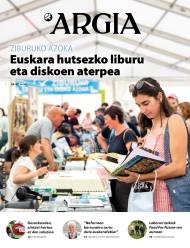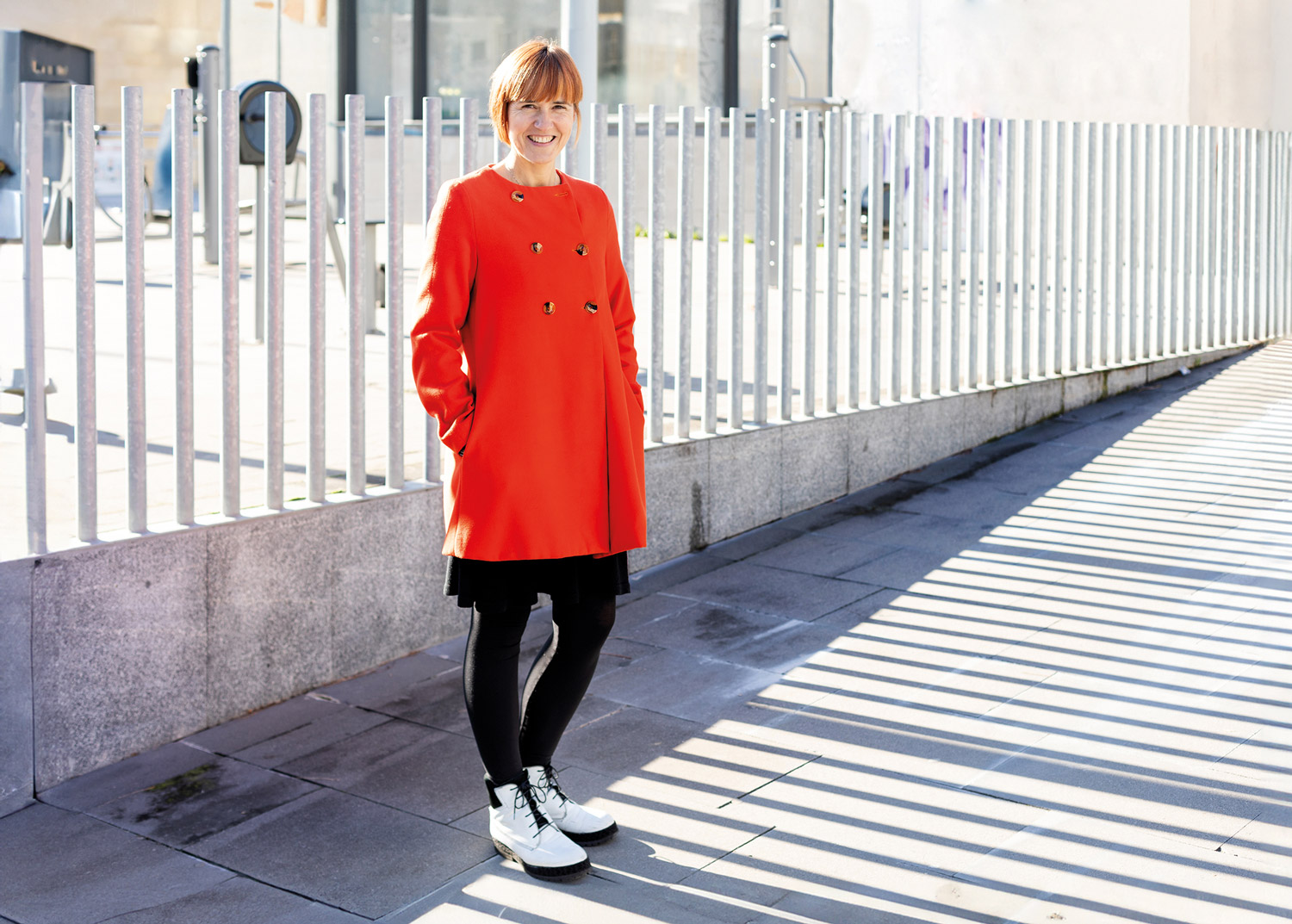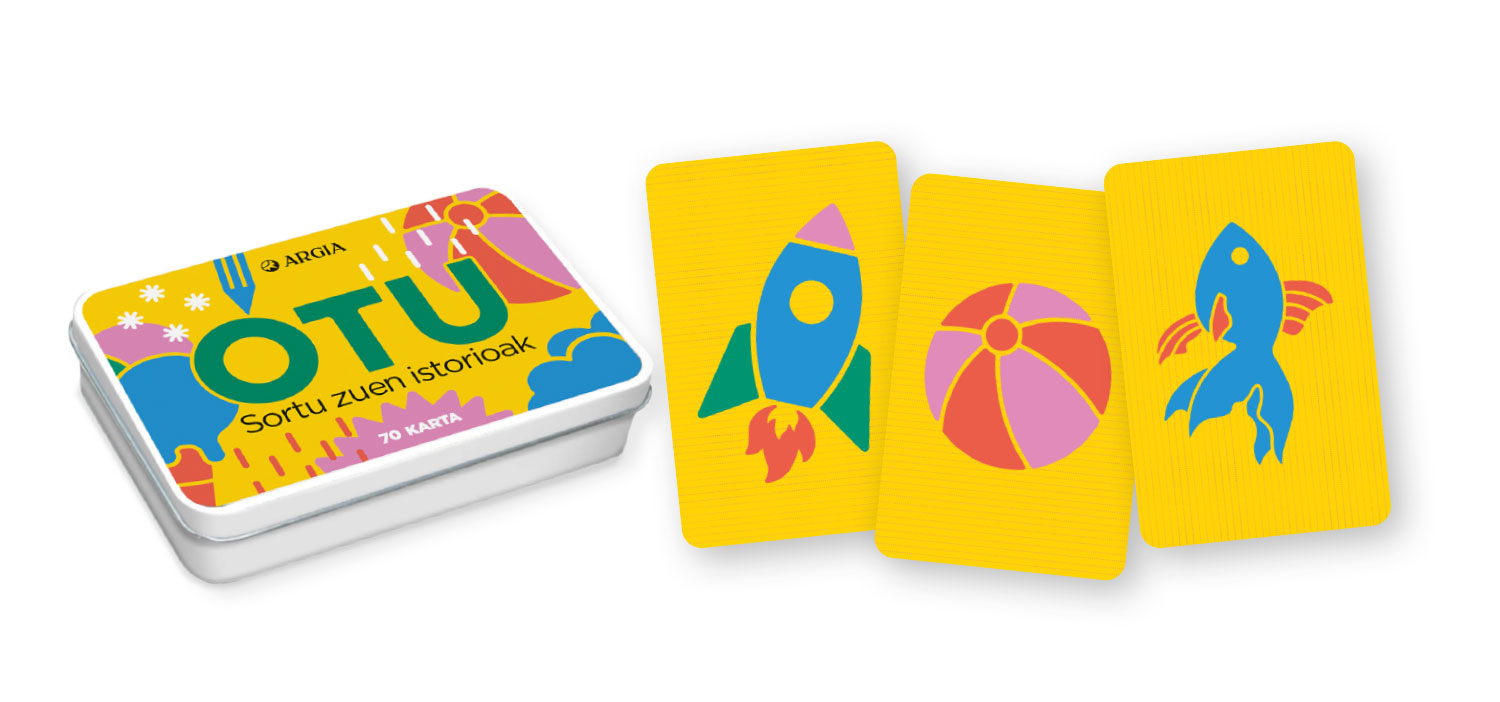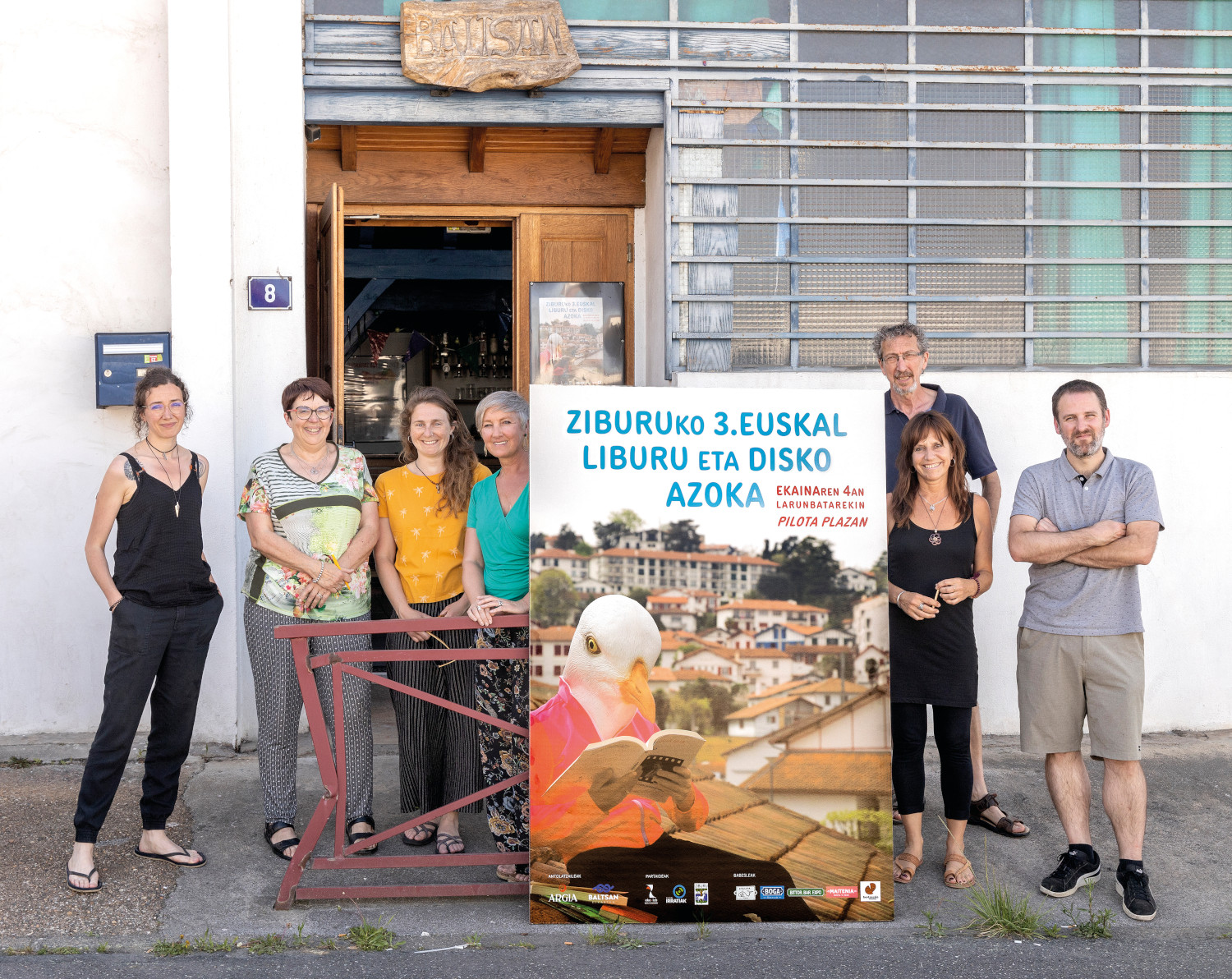“There are many narrators in Euskal Herria and lack of hearing”
- We met at Errenteria, at the Lekuona Factory, with a meeting of storytellers by Amaia Elizagoien Varela. However, it seemed to me that the session was not interrupted, as the Baztanese language shake with great skill. He chose to be a storyteller aware of the importance of oral transmission. It tends to go from square to square and from room, and it likes the anonymity of being storytellers. “What you count is important, but how you count even more in some cases,” he says.
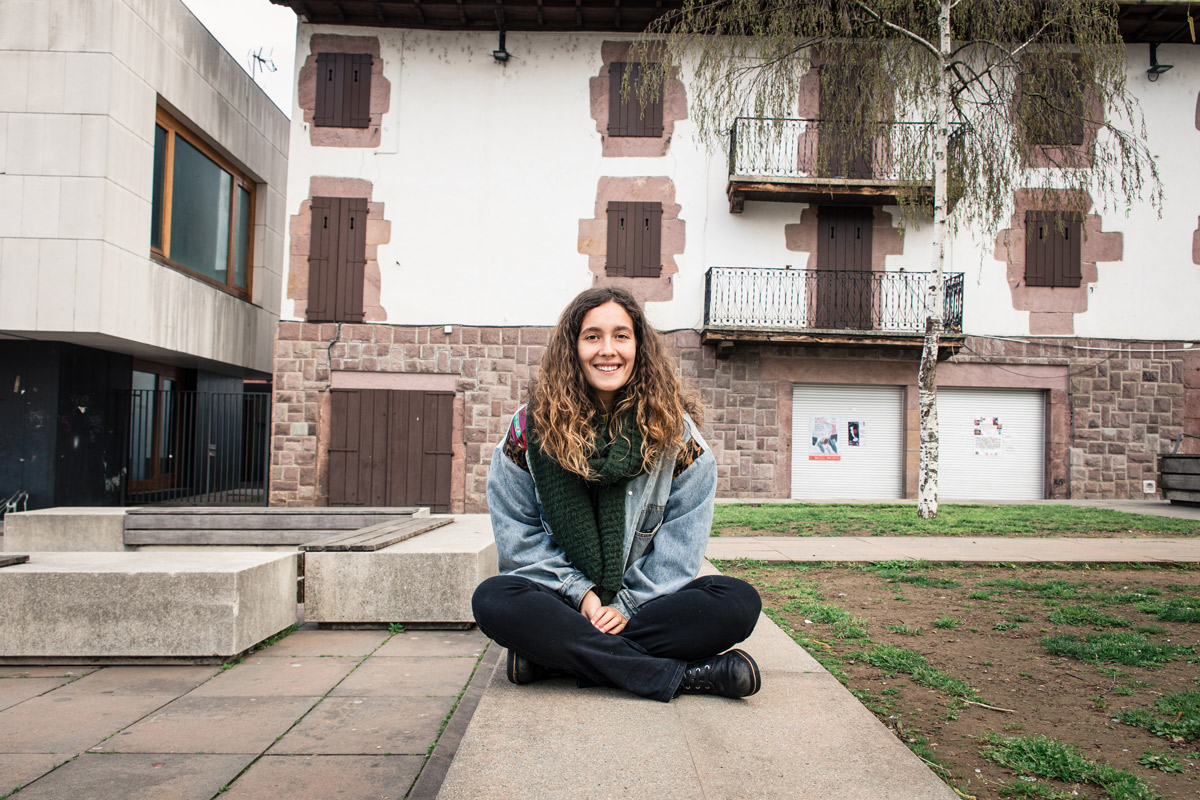
Can you say that you live from creation? Yes, it's the choice I've been able to make. Of course it is not easy, but betting on it has
been a brave act to me. Once the step is taken, all you have to do is find and build your own place. It's built by foot.
What do you believe? I try to make my stories a
collective journey. I carry with me children and adults while I'm counting. I try to immerse myself in the activities and lives of the characters in the story so that the listener travels with me. Thanks to music and the word, the goal is to launch our rusty imagination. In this world of the image, the imagination is biased and I'd like it to be used to retrieve stories of stories.
Many find it hard to recognize themselves as artists. The work of the narrator also has a special feature: even if there is a place by place, we are
very unknown. I have a high-level musical friend, and although we both live since creation, reality is very different. I believe that ours is very intimate, incomparable to the situation of bertsolaris, actors and musicians. That has its positive side, of course. I take most of the proposals that allow me to create, because I don't know how I'm going to be tomorrow, if I'm going to have work. That's the life of the artist.
What does the storytellers need? I would say that a good storyteller has to be recognized as dominating the language. You have to recognize that it is the language you use in your daily life. Furthermore, as
a Basque, I think that our stories have something to take root for the citizens, I do not know how to name them. It's magic. They place us, they remind us and they make us feel like we are from here. Through space, through characters and their routines… Storytellers will also place the audience and adapt the session of that moment and place. I would say that more is needed, but these are the minimum.
The same story, as long as it's told in the same way -- when a story that a Colombian narrator said is told again and again in the same way as you kill that story. You can resurrect, but ideally keep it for a couple of years. Thank you for your trip and let it rest. It is possible that, after a period, it will be
very happy to recover.
The narrator must be included in the story, be in contact with the characters, live the person. Acting automatically takes the story away.
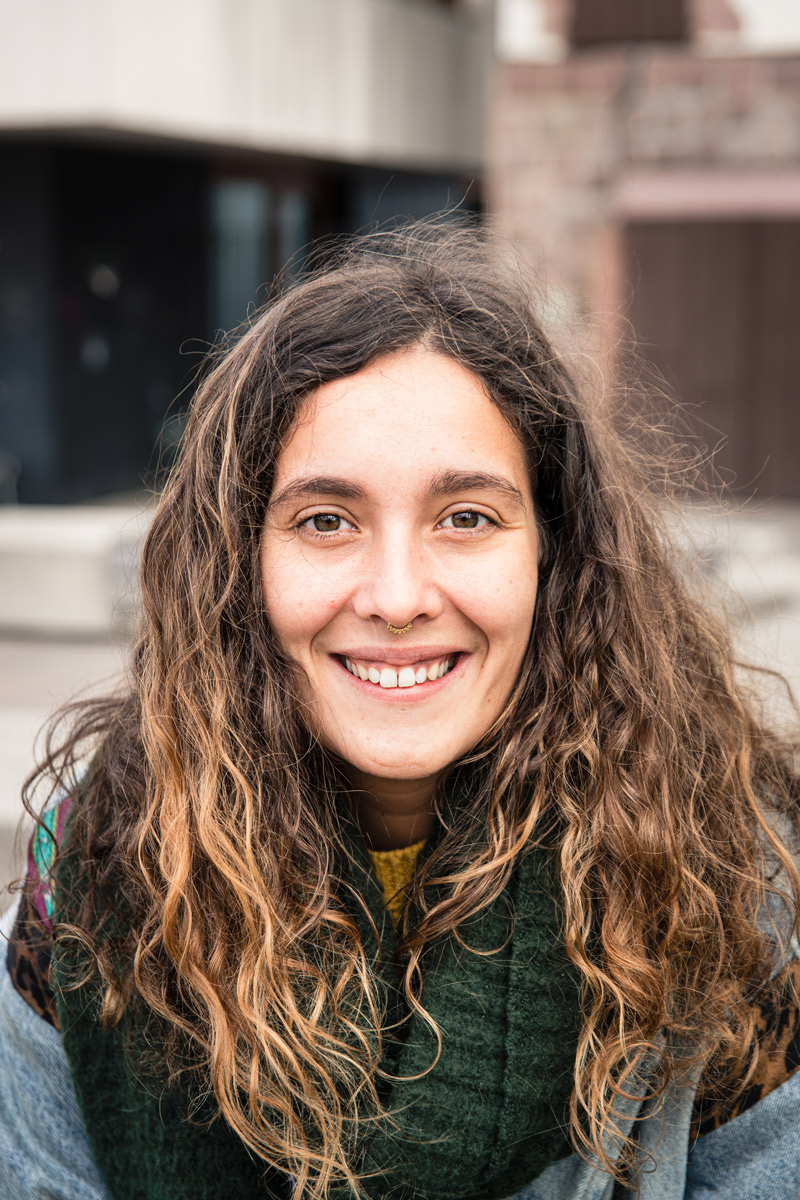
Do you also have the actor? There are many currents and opinions on this, I think
something does. I like working with the body, I would say it helps. And I think I also have some linguistics. Considering that in our case the Basque language is a minority language, I also use synonyms, listing them one after the other for children to feed the dictionary. Children have a lot of ability to learn things.
In addition to children, you also work with adults. Yeah, stories are associated with kids, but they don't. Until about 1970, it was much more common in the Basque Country to tell stories among adults, and it is said that formerly the kitchen of the house was the main center of storytellers. They say they worked in the family when they did repetitive work. There were children, but adults worked for adults. Little by little, they began to enter education, and since then, storytelling with children has
been linked. But it goes further, or at least it would have to go: we all appreciate it coming on the journey of stories. Adults have to give us the opportunity to get excited by a story, cry or laugh.
What does a good listener need? Knowing how to listen. Sessions of about 45 and/or 60 minutes are held in
Aunitz and you can see who is customary and who is not. In the case of adults, for example, it is to be welcomed that they do not leave mobiles. I would say that we have to learn to listen, whether children or adults. I would say that the Basque people need it, express it and be heard. Schools can also influence this, and a teacher can be a storyteller. He gets into a circle, takes the book and moves forward. Surely every day will do better. And not only the story, an event, the day before... You can tell what it is, because it's about acting.
What about housekeeping? It's worth everything, overcoming the challenge of putting screens aside. How many homes do you see the image of each being in front of a
screen instead of chatting? Speaking is transmitted by counting. Emotions, knowledge, customs… of everything. Let us not lose it.
There are a lot of storytellers in Euskal Herria, maybe we miss the audience. And that's what we have today to transform. Everything goes very fast in this world of image and the word is slow. But slowness is beautiful.
Oronoz to the world
Elizagoien believes in the advantage of being small. By adding one thing and taking the other off, you bet on living in Oronoz. “In our environment the Aunitz built very large houses, because there were many who were tenants, and when they started to tap a little bit of money they started building a big house for the family. It's one of them. In view of the housing situation, I decided to make my residence over my parents’ house.” The storyboard creates the flow for us in the corner of the Baztan, at the height of the housing it has built.









